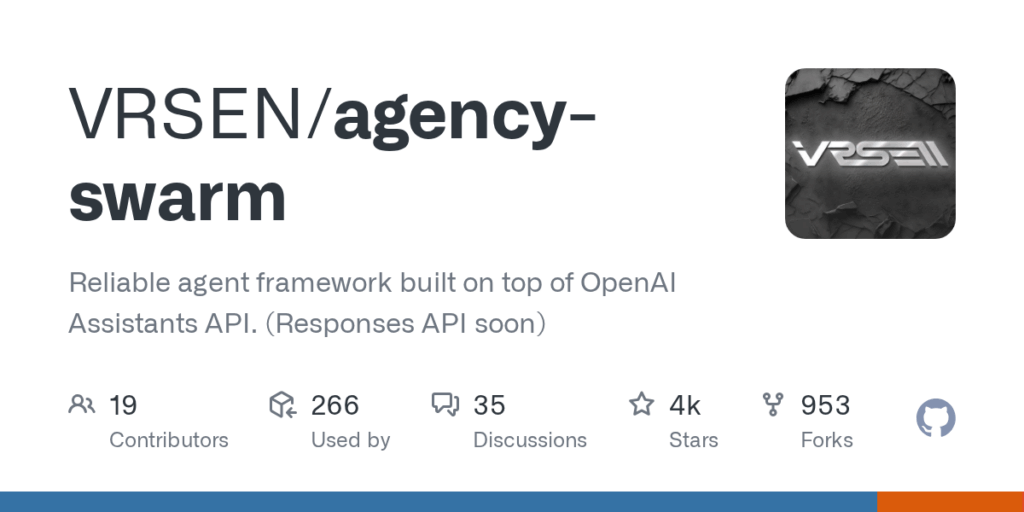agency swarm
Basic Information
Agency Swarm is a framework to automate and orchestrate multi-agent AI systems by enabling users to build collaborative "agencies" composed of specialized agent roles. It was created to let developers and teams model automation with real-world entities such as CEOs, developers and virtual assistants, and to simplify agent creation, communication and state management. The project is built on top of the OpenAI Assistants API and provides tooling to define agents, customize prompts, add type-safe tools, convert OpenAPI schemas into tools, and persist assistant state in a settings.json file. It includes CLI commands, agent templates and examples for running agents locally or as a backend service, and is designed for production use. The repository focuses on giving full control over prompts, tool definitions and communication flows so agencies can be tailored to specific workflows and deployed reliably.








